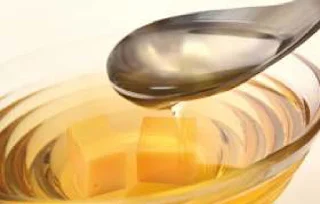Food is essential for sustenance of life. Adulteration of food deceive the consumer and can cause risk to their health. The purpose of this manual is to list out common methodologies available for food adulterants generally found in India.
The scope of this manual is meant for household, which can induce awareness among the consumer about food safety.
Oil and Fats
Test 1 : Detection of other oils in coconut oil
Testing Method:
Adulterated
Test 2 : Detection of TOCP (Tri-Ortho-Cresyl-Phosphate) in oils and fats
Testing Method:
Adulterated
Test 3 : Proper winterization of refined winterized salad oils
Testing Method:
The scope of this manual is meant for household, which can induce awareness among the consumer about food safety.
Oil and Fats
Test 1 : Detection of other oils in coconut oil
Testing Method:
- Take coconut oil in a transparent glass.
- Place this glass in refrigerator for 30 minutes.(Do not keep in the freezer)
- After refrigeration, coconut oil solidifies.
- If coconut oil is adulterated, then other oils remain as a separate layer.
 |
| Pure |
Adulterated
 |
| Adulterated |
Test 2 : Detection of TOCP (Tri-Ortho-Cresyl-Phosphate) in oils and fats
Testing Method:
- Take 2ml of sample of oil.
- Add on a little amount of yellow butter (Solid).
- Immediate formation of red colour indicates the presence of TOCP.
 |
| Pure |
Adulterated
 |
| Adulterated |
Test 3 : Proper winterization of refined winterized salad oils
Testing Method:
- Take 100ml sample oil in bottle, cork tightly and seal with paraffin.
- The bottle is completely submerged in bucket containing finely cracked ice and water is added until it rises to top of the bottle.
- The bucket is kept filled solidly with ice by removing any excess water and adding ice when necessary.
- After 5.5 hours remove the bottle and examine oil.
- If it is properly winterised, sample will be brilliant, clear and limpid.
 |
| Refined winterized salad oils |